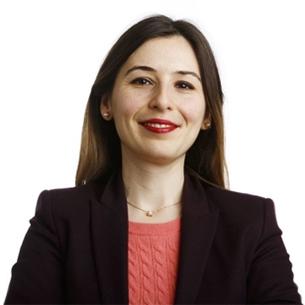Stories at the heart of Innovation: How a fishing boat changed Mariamo’s life
On December 17, 2018, one month-old Joy Nowai received her first shots for hepatitis and tuberculosis—delivered to her village in the remote South Pacific nation of Vanuatu, for the first time ever, by drone. “I am so happy the drone brought the stick medicine to Cook’s Bay as I don’t have to walk several hours to Port Narvin for her vaccines,” her mother, Julie Nowai, told a UNICEF representative. “It is only 15 minutes’ walk from my home.”
This is the story that kicked off the press release used as a “case study” in the storytelling module of the United Nations Innovation Toolkit. Noting that the drone technology itself could have been the main topic of the press release, the Toolkit explains that this human-centered approach worked much better, and got the attention of multiple media outlets, including The New York Times.
Storytelling module helps capture the impact of innovations on people’s individual lives
This case study holds lessons for all of us. At IFAD, we are dedicated to improving the lives of the world’s poorest rural people. But sometimes, the impact of what we do gets lost in facts and figures that, while of crucial importance, can fail to capture the real story: how our work changes real, individual lives.
The storytelling module of the United Nations Innovation Toolkit was designed to help. Breaking down the art of storytelling into a series of basic steps, it’s a great tool to help us better communicate the impact of the work we do.
There’s no need to feel intimidated, as you read through the directions. What the storytelling module outlines are, in fact, the common sense strategies that we all intuitively employ in our everyday lives—but often lose sight of, when we sit down to write a report.
To test this, here’s an exercise: try telling someone who is not familiar with your work about a project you are involved in. You’ll notice, afterwards, that you automatically followed the first set of guidelines in the Toolkit: explaining what the story is and why it is important, quickly and concisely (before you lose your conversational partner’s interest!). Next, try telling the same story to an older family member or a child—you’ll see how you intuitively make certain changes, depending on your audience, while keeping other elements of the story the same.
IFAD’s Innovation Challenge pilot uses 360-degree view technology to tell inspiring stories of rural people like Mariamo
Going back to baby Joy’s story, it’s also crucial to ask: Who is this project helping, and how? At IFAD, one of our recent Innovation Challenge pilots (Rural Development – a 360° view) was the production of virtual reality videos in which rural people who benefited from our projects tell their stories directly.
In one video, we meet Mariamo Bilasse, a 28 year-old woman who lives in Zalala, a coastal village in Mozambique, and find out how a fishing boat changed her life.
“ProPESCA didn’t give me fish,” she explains, “it taught me how to fish. It empowered me.” Mariamo goes on to tell her life’s story: After her father’s death left her mother unable to pay her school fees, she was unable to finish her studies, so she supported herself by baking and selling cakes and soda bottles in the village and on the beach. She used her earnings to start buying, salting and selling fish, skills that qualified her to join IFAD’s ProPESCA project. With the help of the project, she started her fishing business.
Mariamo talks about the training she received through ProPESCA: how best to salt fish, which type of fish nets to use, as well as the marketing and savings skills she acquired.
Her earnings grew. She started dreaming big. She wanted to buy her own fishing boat. Then she joined the Zalala First Village women’s savings group and took out a small loan that allowed her to buy one. Today, she employs three fishermen. “Today, I can afford more than three nutritious meals a day,” Mariamo says. “I can send my husband and my sister to school and give my mother money when she needs it.”
Storytelling is a basic human need. At IFAD, we believe stories like Mariamo’s not only need to be told but should be—because we humans want to know about each other’s lives. By telling real people’s stories—whether Mariamo’s or Baby Joy’s—we get people’s attention, we show the impact of our work, and we might just bring a little more human understanding to the world.
Learn more about the UN Innovation Toolkit here or write to:innovation@unssc.org. The UN Innovation Toolkit is now available and hosted by the UN System Staff College (UNSSC). Nerina Muzurovic is a Knowledge Management and Grants Officer at the International Fund for Agricultural Development. You can follow her on LinkedIn.
